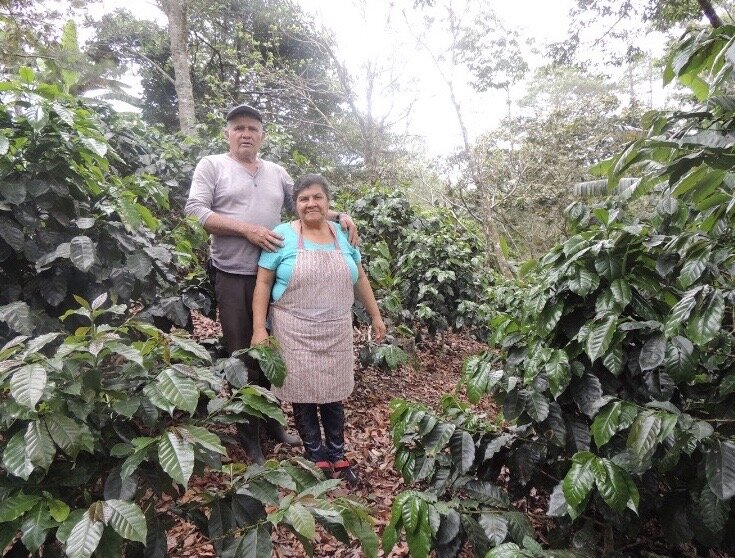Our coffee is ethically sourced through personal relationships with the farmers, exporters and/OR growers we work with. quality is our focus; we will not give into a competitive market at the expense of the farmers from who we partner with.
OUR COFFEE
We provide these green coffee beans for wholesale:
Guatemala -Washed
Café Intencional first started in 2016 with a vision to help Guatemala. Although we’ve now expanded our offerings to more than 5 different countries, our heart will always be with our first love.
Currently, we have relationships with farm owners all over the main coffee producing regions. Antigua, Huehuetenango, Acetennago, Fraijanes región and New Orient.
We can schedule farm visits upon request. If there’s a specific flavor profile, price rang, rating or region you’re looking for. Just let us know.
Honduras
Café Intencional strives to enable local farmers and bring them opportunities to market their coffee to the United States. Our goal is to bring higher than Fair Trade prices while maintaining a competitiveness in the US coffee market. Ultimately providing wholesale green coffee to local roasters that offers both value and sustainability.
In Honduras, we’ve cultivated relationships with the farmers and our exporters to gain access to some incredible coffees. Whatever your desired flavor profile and budget, we can offer the right coffee to fit your needs.
Peru, Cococho FTO - Washed
Certified Fair Trade & Organic : SHB type
Brazil- Cerrado Region Natural & WaSHED process
14/16 Screen Size
17/18 SHB
Additional countries:
India & Columbia
If you wish to learn more about anything regarding our green coffee beans or roasted beans click the link below.
Types of COFFEE:
Huehuetenango, Guatemala.
Huehuetenango is one of Guatemala’s three non-volcanic regions, as well as its highest and driest under cultivation, making it one of the best for coffee production.
Currents of hot air sweep up from the Plains of Tehuantepec, in Oaxaca, Mexico, and mix here with the cool air descending from the Cuchumatanes Mountains, creating a microclimate that’s protected from frost and allowing coffee to be cultivated at up to 2,000 meters.
Huehuetenango’s extreme remoteness requires that nearly all producers process their own coffee. Fortunately, the region has abundant rivers and streams, making it relatively easy for producers to set up mills. Still more fortunately, Huehue’s geographic conditions help to create exceptional coffees with a distinct acidity and fruity flavors.
SHB (Strictly Hard Bean) specifies that the coffee was grown at an altitude above 1,350 meters. (This term is also synonymous with SHG/Strictly High Grown, a classification that’s higher than HB.) EP (European Preparation) means that the green coffee was sorted by hand to remove any defective beans and foreign material.
*Information provided courtesy of www.interamericancoffee.com
ANTIGUA SHB:
Guatemala Antigua. Guatemala is the second largest producer of coffee in Central America, and in many ways, Antigua beans represent all the best qualities beans in this region can offer. For those looking to switch from drinking mass-produced coffee to high-end beans, Guatemala Antigua is the perfect first step.
Coffee production began in Guatemala in the mid-1800s with the development of small plantations. The Antigua coffee region is located near the Southern coast of Guatemala. Beans are grown in a valley surrounded by three volcanic mountains. The area is between 4,600 and 5,600 feet above sea level and has steady 66-71°F temperatures, a reliable weather pattern, heavy rainfall, and a constant high level of humidity. The elevation, nutrient-rich volcanic soil, and ideal weather conditions all combine to create a perfect environment for growing high-quality arabica coffee beans.
Guatemala Antigua is known for its complex flavor profile, especially when compared with other Central American beans. The coffee has a bright acidity combined with a surprisingly full body. This pairing of heavy and light qualities results in a coffee that is both refreshing and fulfilling.
*Information provided courtesy of https://blog.suvie.com/
ATITLAN, GUATEMALA
Lake Atitlán. It is a beautiful area that has a great landscape for producing even greater coffee. Atitlán’s soil is the richest in organic matter. 90% of traditional Atitlán is cultivated along the slopes of the intense volcanoes that overlook the shores of Lake Atitlán. The coffee is harvested mostly on the Pacific side of the region around three volcanic mountains with a high precipitation. In this region, every month of the year will have at least 50 mm of rain. Most producers in this region will use water from the lake for the wet processing. Coffees from around Lake Atitlán are a classic Guatemalan cup. Atitlán coffee has a deep body, stunning acidity and fruit, and hints of chocolate and cinnamon. Also this coffee is an SHB EP which is the highest grade a Guatemalan can receive.
*Information provided courtesy of www.interamericancoffee.com
Jalapa, Guatemala
The name Jalapa alternatively means “sandy places” or “sand and bread.” Whatever else the name implies, it gives nod to mountains and valleys of this diverse region. Organized as a department in 1873 and located in the southeast of Guatemala, climate varies from the mostly cool Mataquescuintla area to the warmer plains and valleys near Monjas. And of course, coffee loves the volcanic mountain soil, cool microclimates. Coffees from this region place regularly in the Guatemala Cup of Excellence contests.
Jalapa’s citizenry is a mix of indigenous peoples and those of Spanish descent. Traditional customs and practices, social organization, dances, and religious cultures are integral to everyday life in the highlands. In Jalapa one can find bull fights and World Cup soccer players to horse parades and marathon runs, Jalapa always has something going for residents and visitors. One important program that has gotten off the ground in the area is called Wells of Hope. Focusing mainly on drilling wells in order to give people access to clean water, Wells of Hope also is helping to build schools and works to encourage self-sufficiency for participants.
*Information provided courtesy of https://crema.co/






